- Home |
- About |
- Contact Us |
- Privacy |
- Newsletter |
- Shop |
- Donate
Least Common Multiple Definition
Support Page

Welcome to our Least Common Multiple Definition page.
As well as a clear definition of the least common multiple we have links to our Least Common Multiple calculator and also our Least Common Multiple worksheets pages.
Least Common Multiple Definition
First of all let us think about what a multiple is.
A multiple is a number which can be divided by another number with no remainder.
It can also be thought of as the result of a product between two numbers.
In other words, any number belonging to any times table is a multiple of that times table.
- 3, 6, 9, 12, 15, 18, ... are all multiples of 3 because they are in the 3 times table
- 10, 20, 30, 40 , 50, ... are all multiples of 10 because they are all in the 10 times table.
- 3 x 4 = 12, so 12 is a multiple of both 3 and 4.
- 5 x 5 = 25 so 25 is a multiple of 5
- 12 x 5, so 60 is a multiple of both 5 and 12.
Now a common multiple is a multiple that several numbers have in common.
- 12, 24, 36 and 48 are all common multiples of 3 and 4 because the numbers are both a multiple of 3 and a multiple of 4.
And the Least Common Multiple between two numbers is the smallest number that is a multiple of both numbers.
And the Least Common Multiple between lots of numbers, is the smallest multiple that all the numbers have in common.
The Least Common Multiple is the same as the Lowest Common Multiple.
It is often abbreviated to the LCM.
You can always find a common multiple of two numbers by multiplying them together, but this may not always be the least common multiple (as there may be a smaller common multiple).
Least Common Multiple Definition (or LCM) - How to find it!
So now that we ahve the least common multiple definition, how do we actually find it?
There are a several ways to do this, but we are going to show you two of the easiest ones:
- listing all the multiples method
- prime factorization method
Finding the Least Common Multiple (or LCM) - by Listing the Multiples Method
The least common multiple definition is the lowest number which is a multiple of both (or all) numbers.
So the obvious way to find the LCM of two numbers is to simply write lists of multiples of all the numbers until you find the same number on both lists.
This method is the simplest way to find the LCM of any set of numbers.
The only problem with this method is that it can take quite a long time to do, especially if the numbers are large and have no common factors.
Remember, if there are only two numbers, you only need to write your multiples up to the value of the other number.
Example: if you are looking for the least common multiple of 5 and 8, you only need to go up to the 8th multiple of 5, or the 5th multiple of 8 (which is 40).
This is because we know that a x b will always be a common multiple of a and b, though it may not always be the least common multiple.
Examples
Example 1) Find the least common multiple of 5 and 3.
The multiples of 5 are: 5, 10, 15, 20, 25, 30, 35, 40, ...
The multiples of 3 are: 3, 6, 9, 12, 15, 18, 21, 24, 27, 30, ...
So we have found two common multiples which occur on both lists: 15 and 30.
Note that we really only needed to go up to the 3rd multiple of 5, or the 5th multiple of 3 to find our answer.
The Least Common Multiple is 15 (which is 3 x 5).
Example 2) Find the lowest common multiple of 5 and 11.
The multiples of 5 are: 5, 10, 15, 20 , 25, 30, 35, 40, 45, 50, 55, 60
The multiples of 11 are: 11, 22, 33, 44, 55, 66, ...
The smallest number on both lists is 55 (which is 5 x 11).
The Lowest Common Multiple is 55.
Example 3) Find the lowest common multiple of 6 and 15.
The multiples of 6 are: 6, 12, 18, 24 , 30, 36, 42, 48, 54, 60, 55, 60
The multiples of 15 are: 15, 30, 45, 60, 75, 90, ...
We have found two common multiples: 30 and 60.
The smallest number on both lists is 30 (note that this is a smaller value than 6 x 15).
The Lowest Common Multiple is 30.
Example 4) Find the least common multiple of 4 and 6 and 10.
The multiples of 4 are: 4, 8, 12, 16 , 20, 24, 28, 32, 36, 40, 42, 48, 52, 56, 60, 64
The multiples of 6 are: 6, 12, 18, 24, 30, 36, 42, 48, 54, 60, 66...
The multiples of 10 are: 10, 20, 30, 40, 50, 60, ...
The smallest number on all the lists is 60.
The Least Common Multiple is 60.
Least Common Multiple Calculator - The Prime Factors Method
This method works well for larger numbers where it would take a long time to use the multiples method, but it is more complicated to use!
You need to write each number as list of products of prime factors.
Now write each of these lists in exponential form.
Now combine your lists together starting the smallest factor and highest exponent of each factor first.
Now look at your lists of prime factors and for each repeated factor, you only need to use the factor with the highest exponent (or just one of the factors if the exponents are the same).
Multiple your remaining prime factors in the list together to find the LCM.
This sounds complicated, but if you look at the examples below it will hopefully make more sense!
Example 1) Find the lowest common multiple of 14 and 20.
As a product of prime factors:
- 14 = 2 x 7
- 20 = 2 x 2 x 5 = 22 x 5
Next combine the factors and sort this list by order of number and exponent:
22, 2, 5, 7
Now remove any lower exponents of the same number from the list.
The factor 2 is repeated so we only need to use the highest exponent which is 22.
Our new list is:
22, 5, 7.
Now we multiple the factors of the list together.
This gives us: 22 x 5 x 7 = 2 x 2 x 5 x 7 = 140
The Least Common Multiple is 140.
Example 2) Find the least common multiple of 144 and 78.
As a product of prime factors:
- 144 = 2 x 2 x 2 x 2 x 3 x 3 = 24 x 32
- 78 = 2 x 3 x 13
Next combine the factors and sort this list by order of number and exponent:
24 x 2 x 32 x 3 x 13
Now remove any lower exponents of the same number from the list.
The factor 2 is repeated so we only need to use the highest exponent which is 24.
The factor 3 is repeated so we only need to use the highest exponent which is 32.
This gives us a final list of:
24, 32, 13.
Now we need to multiple the prime factors together to find the LCM.
This gives us: 24 x 32 x 13 = 2 x 2 x 2 x 2 x 3 x 3 x 13 = 1872
As you can probably see, this would take a while to work out using the multiples method!
The Least Common Multiple (LCM) is 1872.
Example 3) Find the least common multiple of 14, 31 and 12.
As a product of prime factors:
- 14 = 2 x 7
- 31 = 31 (it is already prime)
- 12 = 2 x 2 x 3 = 22 x 3
Next combine the factors and sort this list by order of number and exponent:
22, 2, 3, 7, 31
The factor 2 is repeated and we only need to use the highest exponent which is 22.
This gives us a final list of:
22, 3, 7, 31
Now we need to multiple the prime factors together to find the LCM.
This gives us: 22 x 3 x 7 x 31 = 2 x 2 x 3 x 7 x 31 = 2604
The Least Common Multiple (LMC) is 2604.
Example 4) Find the smallest common multiple of 129 and 321.
As a product of prime factors:
- 129 = 3 x 43
- 321= 3 x 107
Next combine the factors and sort this list by order of number and exponent:
3, 3, 43, 107
The factor 3 occurs in both numbers, and the exponent is the same, so we just need to include it once.
This gives us a final list of:
3, 43, 107
Now we need to multiple the prime factors together to find the LCM.
This gives us: 3 x 43 x 107 = 13803
The Least Common Multiple (LCM) is 13803.
Least Common Multiple Calculator
Our Least Common Multiple Calculator will find the lowest common multiple of 2 or more numbers.
It will also show you the working out using a choice of two different methods.
There are also some worked examples on the page with explanation of how it works.
Least Common Multiple Worksheets
We have a range of worksheets on how to find the least common multiple of two or three numbers.
The sheets vary in difficulty, and are suitable for 6th grade and up.
More Recommended Math Worksheets
Take a look at some more of our worksheets similar to these.
Greatest Common Factor Support Page
If you want to learn more about the Greatest Common Factor and how each of the methods above works, come and visit our Definition of Greatest Common Factor page.
We have lots of worked examples showing you how to find the greatest common factor using different methods.
Greatest Common Factor Worksheets
We have a range of greatest common factor worksheets with numbers up to 100.
There are some supported sheets and some harder independent sheets.
Greatest Common Factor Calculator
Our Greatest Common Factor calculator will tell you the highest common factor between 2 or more numbers.
It will also list the factors of each of the numbers and tell you whether they are coprime or not.
Inequalities, Multiples and Factors Worksheets
We have worksheets to help you understand more about factors and multiples.
They are aimed at a 4th/5th grade level.
What is a Prime Number?
We have lots more information and help about prime numbers.
Prime numbers are very important in the properties they have, and you can find out more about them on this page.
What is prime factorization?
To find out more about prime factorization, including how it works and to look at some worked examples, take a look at our prime factorization support page.
Review our Least Common Multiple Definition page
We hope you found our Lowest Common Multiple Definition page useful, please feel free to leave us a comment below.
How to Print or Save these sheets 🖶
Need help with printing or saving?
Follow these 3 steps to get your worksheets printed perfectly!
How to Print or Save these sheets 🖶
Need help with printing or saving?
Follow these 3 steps to get your worksheets printed perfectly!
Subscribe to Math Salamanders News
Sign up for our newsletter and get free math support delivered to your inbox each month. Free seasonal math grab pack included.
Return to 6th Grade Math Worksheets
Return from Least Common Multiple Definition to Math Salamanders Homepage
Math-Salamanders.com
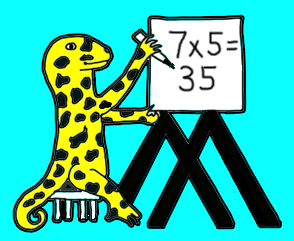
The Math Salamanders hope you enjoy using these free printable Math worksheets and all our other Math games and resources.
We welcome any comments about our site or worksheets on the Facebook comments box at the bottom of every page.



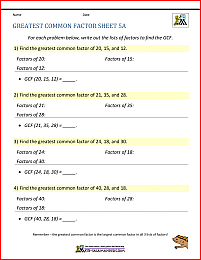

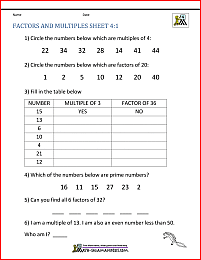
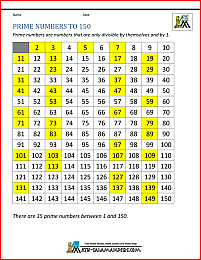
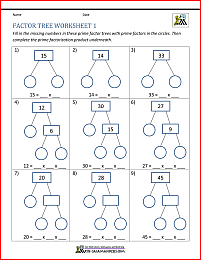

New! Comments
Have your say about the Math resources on this page! Leave me a comment in the box below.